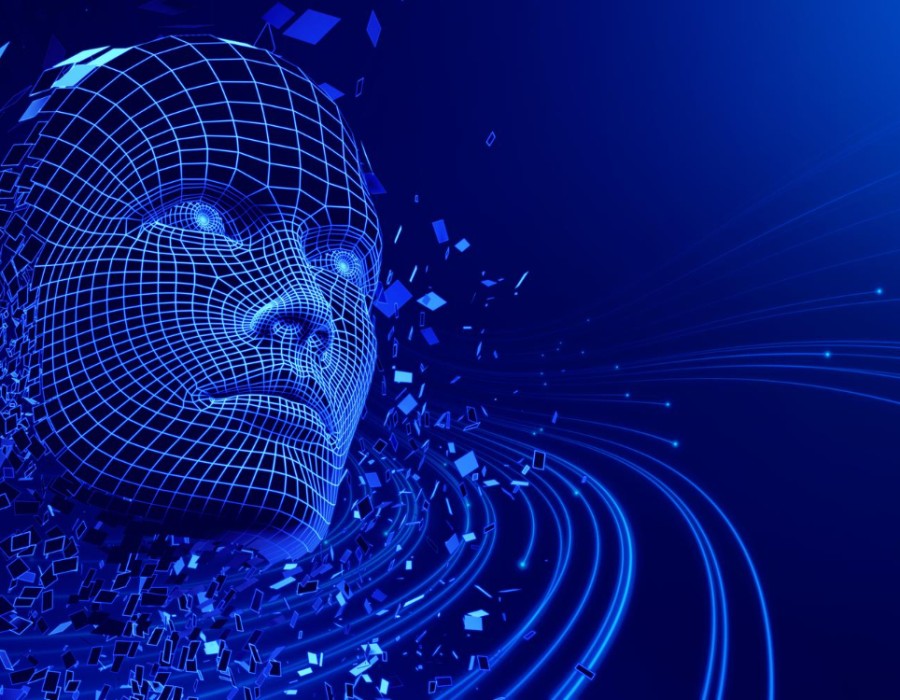Introduction
Businesses across industries are shifting from manual work to custom AI solutions to improve efficiency, accuracy, and customer experience. While manual processes rely on human effort, AI-driven solutions utilize automation, data-driven information, and AI-powered automation to simplify processes and improve outcomes.
From AI-powered chatbots for customer support to AI agents handling complex analytics, industries are rapidly adopting AI to stay competitive. But what are the key differences between custom AI solutions and manual work? And how does it impact different industries?
In this article, we will explore the four biggest differences between custom AI solutions and manual work across healthcare, retail, finance, and manufacturing.
Top 4 Differences in Custom AI Solution & Manual Work in Different Industries
1. Healthcare: AI for Faster Diagnoses vs. Manual Medical Assessments
Manual Work in Healthcare
Traditionally, medical professionals rely on manual assessments, paper-based records, and human expertise to diagnose and treat patients. Doctors analyze patient histories, conduct physical examinations, and manually interpret lab results to make decisions.
Custom AI Solution in Healthcare
With the introduction of AI-powered automation, healthcare providers use data-driven AI solutions to analyze medical records, detect diseases, and recommend treatments. AI assists doctors by identifying patterns in medical imaging, lab tests, and patient histories faster than humans.
Key Differences:
- Speed: AI can process millions of medical records in seconds, while human doctors require hours or days.
- Accuracy: AI reduces diagnostic errors by cross-referencing vast amounts of medical data and research.
- Automation: AI automates patient scheduling, record management, and treatment planning, reducing administrative workload.
- AI Agent Assistance: AI helps doctors make informed decisions by suggesting treatment options based on global medical data.
Example: IBM Watson Health uses custom AI solutions to analyze medical images and assist radiologists in detecting diseases faster and with greater accuracy.
2. Retail: AI-Powered Customer Support vs. Manual Assistance
Manual Work in Retail
Before AI, customer support in retail was entirely manual. Sales representatives and customer service agents assisted shoppers in physical stores and responded to customer inquiries through calls, emails, or in-person interactions.
Custom AI Solution in Retail
Retailers now use conversational AI and AI-powered automation to handle customer inquiries, personalize recommendations, and improve shopping experiences. AI chatbots and virtual assistants engage customers 24/7, providing instant responses.
Key Differences:
- Availability: AI-powered chatbots provide 24/7 customer support, unlike human agents who have limited working hours.
- Efficiency: AI processes thousands of customer queries simultaneously, whereas manual support teams are limited in handling volume.
- Personalization: AI analyzes customer behavior and provides customized AI solutions for product recommendations.
- Automation: AI automates order tracking, return requests, and stock availability, simplifying the retail process.
Example: H&M’s AI-powered chatbot assists customers with style recommendations, product searches, and order tracking, reducing the burden on human representatives.
3. Finance: AI-Powered Fraud Detection vs. Manual Investigation
Manual Work in Finance
Traditionally, fraud detection and risk assessment were handled manually by financial analysts, who reviewed transactions for anomalies. It was time-consuming and error prone.
Custom AI Solution in Finance
With AI-powered automation, financial institutions now analyze real-time transaction data to detect suspicious activities instantly. AI solutions use machine learning algorithms to flag fraudulent transactions based on historical data patterns.
Key Differences:
- Speed: AI detects fraud in real-time, while manual fraud investigations can take days or weeks.
- Accuracy: AI minimizes false positives and human errors by learning from massive datasets.
- Automation: AI eliminates the need for manual monitoring by continuously scanning transactions for fraud indicators.
- AI Process Optimization: AI streamlines loan approvals, credit risk assessments, and account security monitoring.
Example: PayPal uses an AI-powered fraud detection system that analyzes millions of transactions per second, ensuring secure payments and reducing fraudulent activities.
4. Manufacturing: AI-Driven Automation vs. Manual Production
Manual Work in Manufacturing
Before AI, manufacturing depended heavily on human labor for assembly, quality control, and inventory management. Workers manually operated machinery, inspected products, and managed supply chains.
Custom AI Solution in Manufacturing
Now, factories use AI-powered automation and AI agents to optimize production lines. AI solutions predict machine failures, streamline inventory management, and automate repetitive tasks.
Key Differences:
- Efficiency: AI speeds up production by automating repetitive tasks, reducing human fatigue.
- Predictive Maintenance: AI predicts machine failures before they occur, preventing costly downtime.
- Quality Control: AI inspects products with higher accuracy, detecting defects faster than humans.
- Cost Reduction: AI lowers operational costs by optimizing resource allocation and minimizing waste.
Example: Tesla’s AI-powered manufacturing process utilizes robots and AI-driven quality control to improve efficiency and reduce production errors.
Conclusion
Industries worldwide are rapidly adopting custom AI solutions to replace manual work, bringing efficiency, accuracy, and automation to their processes.
From AI-powered diagnostics in healthcare to automated fraud detection in finance, the shift from manual processes to AI-driven solutions is transforming businesses.
Key Takeaways:
- Healthcare: AI diagnoses diseases faster and more accurately than human doctors.
- Retail: AI provides 24/7 customer support and personalized shopping experiences.
- Finance: AI detects fraudulent transactions instantly, enhancing security.
- Manufacturing: AI automates production and predicts machine failures, increasing efficiency.
The future of industries is AI-driven, and companies investing in customized AI solutions will gain a competitive edge in the market.
Are you looking for a custom AI solution to automate your business processes? Contact Us for professional assistance by Complere Infosystem.





Comments